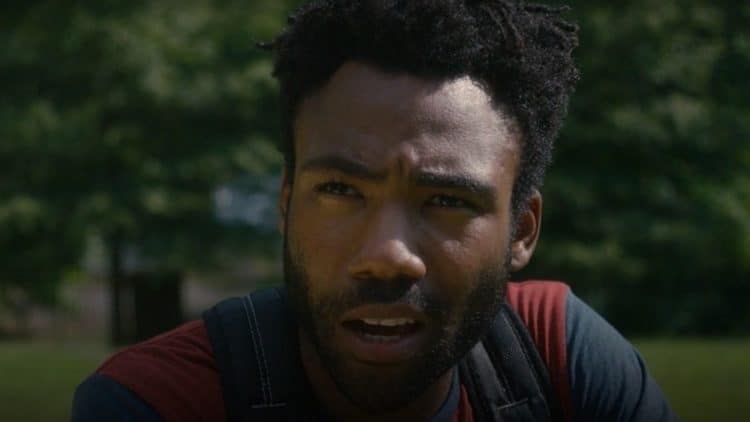
It’s amazing how much of an impact Atlanta has had despite only running for two seasons and twenty episodes thus far. Luckily, the Donald Glover series has season three and four wrapped up, so it shouldn’t be too long until we dive back into the world of Earnest, Darius (Lakeith Stanfield), and Alfred Miles aka Paper Boi (Brian Tyree Henry). However, just what makes this comedy-drama one of the best on television thus far? It’s honest, raw, weird, bold, and original. In Atlanta, we’re not just following Earnest, Darius, and Paper Boi trying to make it big so they can finally get out of the hood. Granted, that’s the ultimate goal for the three characters, but when episodes like Teddy Perkins air, it explores more than just three black men struggling to get out of the ghettos of Atlanta. That special episode follows Darius, who’s trying to pick up a piano from a guy named Teddy Perkins (which is Donald Glover in whiteface). The entire episode is a strange trip that expands the world of Atlanta. This episode subverted the usual Atlanta formula by going into a darker and creepier tone that showcased the symbolism of a tortured soul stuck in a racist America. The show isn’t afraid to challenge the minds of viewers and take risks that so few shows do in today’s landscape.
Even without that episode, it’s a fascinating look at the struggles that black men face throughout their everyday lives. Whether it’s Earnest’s on-again, off-again relationship with Van (Zazie Beetz), to Paper Boi dealing with fame, to Darius’s…er, weirdness, the series is never afraid to explore the deep-rooted issues that plague black America, yet it doesn’t beat you in the head with its message. Take the B.A.N episode, which tackles the masculinity surrounding the black community, namely the rap world. It discusses homophobia and transphobia within the community, but it doesn’t try to force you to pick a side. It’s easy to agree with Paper Boi in this episode. It’s clear that host Franklin Montague and Dr. Deborah Holt are misconstruing the rapper’s words; however, it’s also noticeable through Paper Boi’s words and actions how little he’s informed about homophobia and transphobia that often plagues the community. Don’t get me wrong, I’m not saying that Paper Boi was unknowingly being trans and homophobic, but the episode explored the masculinity within the world of rap music in an insightful, yet funny manner.
The series also showcases the issues that hold black men from reaching their true potential. Donald Glover’s Earnest is a nice guy, but his life is a mess. He’s often selfish when it comes to his baby mama Van, a bit incompetent when it comes to being the manager for Paper Boi, but smart enough not to be your average black man struggling in society. Most of the humor coming from Earnest plays off is an awkward, nice guy route. One of the funniest moments playing off of his personality is the episode Streets on Lock, where Johnny finds out that’s he being dating a transsexual the whole time. This is an awkward moment, but Earnest’s body language speaks a thousand words. The entire situation is hilarious and showcases just how intelligent Atlanta’s humor can be. Going back to Paper Boi, the series wisely avoid him being another cliched television rapper. There’s multiple layers to his character; however, it’s fascinating to see how Paper Boi is treated both inside and out of the music industry. His little feud with black Justin Bieber provided several laugh-out-loud moments; however, the crucial aspect is how he’s perceived in the whole situation. Despite Bieber starting the entire conflict, given Paper Boi’s status as a gangster, he’s completely judged based on his persona, whereas Bieber is seen as the golden child despite him being a complete tool throughout the episode. Moments like that educates audiences on not on the music industry itself, but how an image can cast a shadow throughout your entire life in the eyes of others.
One of the strongest episodes in the series is Woods, where we get a highly vulnerable side of Paper Boi. It highlights just how dangerous his world can be, even with his celebrity status. Of course, this powerful episode is due to the strong performance of Brian Tree Henry. We’re use to seeing his character being tough, charming, or intimidating, but Henry does an excellent job of tapping in on Paper Boi’s fear. The rapper’s lifestyle isn’t as a glamorous as media often portrays it to be, and this episode helped highlight the human side of the gangster rapper. With season three coming up soon, it should be exciting to see what’s next for Paper Boi, Earnest, and Darius. If Atlanta continues telling bold stories that tackles modern issues in society then there’s no doubt that’s it’ll be another great season.Atlanta
 Follow Us
Follow Us





